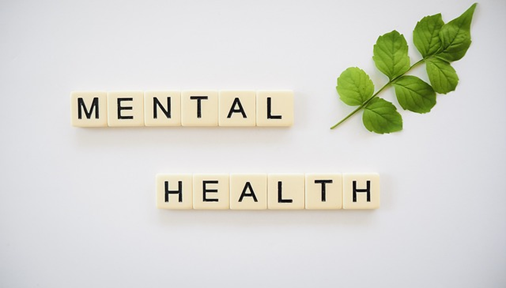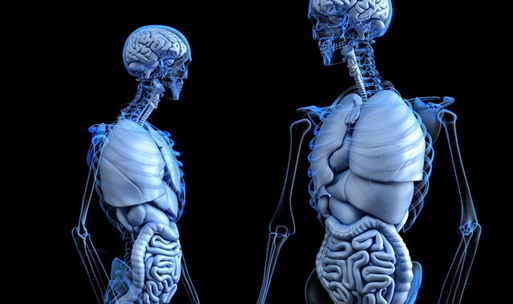Dr. Kelly Roan, an expert in holistic wellness, delves deep into this fascinating realm of the connection that exists between our gut and our brain, shaping not only our physical well-being but also our mental health. In this article, Dr. Kelly Roan explains how the health of our gut intricately influences our bodies, unraveling a crucial aspect of holistic health.
In our quest for overall well-being, we often focus on elements like diet, exercise, and stress management. But what if there was something missing? Enter the “Gut-Brain Connection,” a fascinating link between the health of our gut and the well-being of our mind. Below, Dr. Kelly Roan discovers strategies to improve our gut health for better mental health.
Dr. Kelly Roan Explains the Link
At first glance, it might seem surprising that our gut, often thought of as a simple digestive organ, could have such a profound impact on our mental health. However, it’s not as straightforward as it may seem. The connection involves a complex and intricate network of communication between the central nervous system and the enteric nervous system, often colloquially referred to as the “second brain.”
Dr. Kelly Roan says that this second brain is composed of an astounding number of neurons—hundreds of millions of them—and it plays a vital role in influencing our mood, emotions, and even our mental health. The gut-brain connection is, essentially, a bidirectional system of communication that enables our gut to send signals to our brain and vice versa.
How it Works
So, how does this connection work? Well, there are multiple ways in which the gut can influence the brain and our mental well-being. It primarily involves the following mechanisms:
Neurotransmitters
The gut is a major producer of neurotransmitters, the chemical messengers that transmit signals in our brain. Dr. Kelly Roan explains that key neurotransmitters like serotonin, dopamine, and GABA, which are closely linked to mood and emotional regulation, are significantly influenced by our gut microbiota.
Immune System
The gut houses a substantial portion of our immune system. When the gut microbiota is in disarray, it can trigger an inflammatory response, which may lead to brain inflammation and impact mental health negatively.
Hormones
Dr. Kelly Roan also notes that our gut microbiota can influence the production of hormones related to stress and mood regulation, such as cortisol. An imbalanced gut can disrupt the hormonal balance and lead to increased stress and anxiety.
Vagus Nerve
The vagus nerve, a critical component of the gut-brain connection, acts as a direct pathway for communication between the gut and the brain. Signals from the gut can travel through the vagus nerve to influence various brain functions.
How Gut Health Affects Mental Health

Numerous studies have revealed the intricate ways in which gut health affects our emotional and psychological states.
Depression
Dr. Kelly Roan remarks that depression is a common mental health disorder that can be influenced by the gut. Studies have shown a connection between the gut microbiota and depressive symptoms. An unhealthy gut can lead to inflammation, which, in turn, may affect brain function and contribute to the development of depression.
Anxiety
Anxiety disorders can also be linked to gut health. When the gut is not in optimal condition, it can send signals to the brain, triggering feelings of unease and anxiety.
Stress
Chronic stress can also disrupt the balance of the gut microbiota. An imbalanced gut microbiome can impair the body’s stress response and lead to increased feelings of stress and anxiety.
Mood Disorders
Dr. Kelly Roan explains that mood disorders like bipolar disorder and schizophrenia have been associated with gut health imbalances. The gut-brain axis plays a significant role in regulating mood, and maintaining a healthy gut can help in managing these conditions.
Brain Fog
Ever experienced brain fog? It may be linked to your gut. Poor gut health can lead to an overgrowth of harmful bacteria, causing inflammation and that foggy feeling.
Memory Loss
This intricate connection can also affect memory. Dr. Kelly Roan reports that some studies suggest that an unhealthy gut may be a contributing factor to memory problems and neurodegenerative diseases.
The Impact of Gut Microbiota on Mental Health
The gut-brain connection extends to the gut microbiota, revealing how its composition and function can significantly influence our mental health.
Dysbiosis and Mental Health Disorders
Dysbiosis, an imbalance in the gut microbiota, is often associated with mental health disorders. Dr. Kelly Roan says that it can disrupt the production of essential neurotransmitters and lead to mood disturbances.
The Gut-Brain Axis
This connection is facilitated by the “gut-brain axis,” a bidirectional communication system that allows the gut and brain to exchange signals. This system involves various pathways, including the nervous system, immune system, and endocrine system.
Strategies to Improve Gut Health for Better Mental Well-being
Dr. Kelly Roan says that the connection has opened up a fascinating world of possibilities for improving mental health by focusing on gut health. By nurturing your gut microbiota and maintaining a healthy gut, you can positively impact your emotional and psychological well-being. Here are some practical strategies to enhance your gut health for better mental well-being:
- Diet Adjustments

Fiber-Rich Foods: Incorporate a variety of fiber-rich foods into your diet, such as whole grains, legumes, fruits, and vegetables. Fiber acts as a prebiotic, nourishing the beneficial bacteria in your gut.
Fermented Foods: Add probiotic-rich foods to your diet, like yogurt, kefir, sauerkraut, kimchi, and kombucha. These foods introduce beneficial live bacteria to your gut.
Diversity: Consume a wide range of foods to promote a diverse gut microbiome. A more diverse gut microbiota is associated with better mental health.
- Managing Stress Levels
Chronic stress can have a negative impact on gut health, so incorporating stress management techniques into your daily routine is essential:
Mindfulness and Meditation: Practicing mindfulness and meditation can help reduce stress and improve gut health.
Deep Breathing Exercises: Deep, diaphragmatic breathing can calm the nervous system and reduce stress-related effects on the gut.
Yoga: Regular yoga practice can promote relaxation and balance the gut-brain axis.
- Supplements and Probiotics
Dr. Kelly Roan says of course, to consult with a healthcare professional before taking supplements or probiotics, as individual needs can vary. However, these can be beneficial for restoring gut balance:
Probiotic Supplements: High-quality probiotic supplements can introduce beneficial bacteria into your gut, aiding in digestion and mental well-being.
Prebiotics: Consider prebiotic supplements or foods rich in prebiotics, such as garlic, onions, and leeks, to nourish beneficial gut bacteria.
- Moving Your Body More
Regular physical activity can have a positive impact on gut health and overall mental well-being. Exercise can promote the growth of beneficial gut bacteria.
- Lifestyle Changes
Reducing alcohol and tobacco consumption can support a healthier gut. Maintaining a regular sleep schedule and staying hydrated are also important for gut health. Prioritize these elements in your life to reduce the negative impact of stress.
- Consultation with a Healthcare Professional
If you’re experiencing severe mental health issues, always seek professional help. A healthcare provider can help identify the best approach to address your specific concerns.
Summary
In conclusion, the connection between the mind and the gut is a captivating area of study that reveals the profound impact of gut health on our mental well-being. By understanding this connection and implementing strategies to improve our gut health, we can take significant steps towards a happier and healthier mind. Remember that mental health is a complex and multifaceted issue, and it’s essential to consult with healthcare professionals when necessary to ensure the best care for your well-being.









